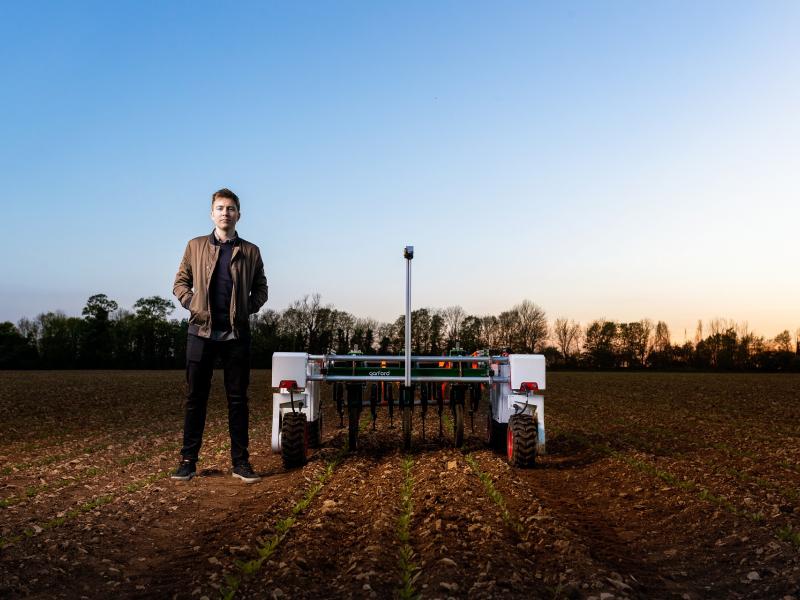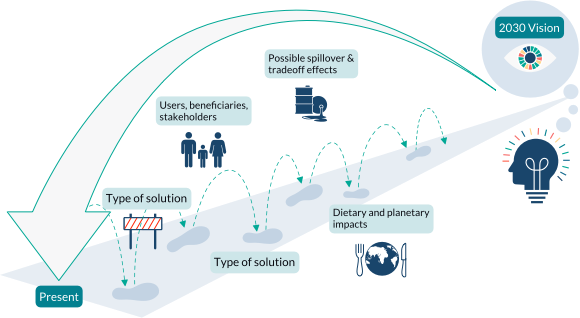On-field robots

Description of the innovative solution
Robots can be used for a range of agricultural activities in the field. This includes crop and animal sensing, input application, weeding, drilling, and harvesting. Automated systems for on-field agricultural activities have the potential to improve agricultural yield and productivity, while reducing fertiliser and pesticide use, as well as water loss and soil compaction, however the level of benefit will be context specific. Some of these technologies are already widely used, while others are still in development or theoretical. Precision farming, which uses varying levels of automation...
Robots can be used for a range of agricultural activities in the field. This includes crop and animal sensing, input application, weeding, drilling, and harvesting. Automated systems for on-field agricultural activities have the potential to improve agricultural yield and productivity, while reducing fertiliser and pesticide use, as well as water loss and soil compaction, however the level of benefit will be context specific. Some of these technologies are already widely used, while others are still in development or theoretical. Precision farming, which uses varying levels of automation, already allows more accurately sowing of crops, more efficient harvesting, and use less water, pesticide, and fertiliser to achieve the same or even greater agricultural yield. Improvements in precision farming technology through increased automation could further increase productivity. However, full automation of agriculture activities is currently hampered by the dynamic and unstructured environment of field farming and will require further research to overcome.
Examples and additional resources
Real-world examples
See this solution in action in different contexts and settings around the world
Greenfield Robotics
Additional resources
Learn more about this solution through studies, articles, business cases, and other information
Five Roles of Agricultural Robots
Contacts
Connect to others working on and with this solution around the world
Pathways to uptake
Engage with our “backcasting tool” to imagine and design “pathways to uptake” for this solution in your setting.
This process involves defining a future vision of this solution being used in your context, and then working “backwards” to identify necessary steps to achieve this vision by 2030. Going through this exercise as an individual or with a team can help to clarify the WHAT/WHEN/HOW of moving a solution (or package of solutions) towards having major impact. We hope these pathways will inspire outside-of-the-box thinking, creative approaches, and actionable concrete steps to move ideas into action.
Pathway builder
Explore pathways for this solution
Be the first one and add a pathway for this solution!